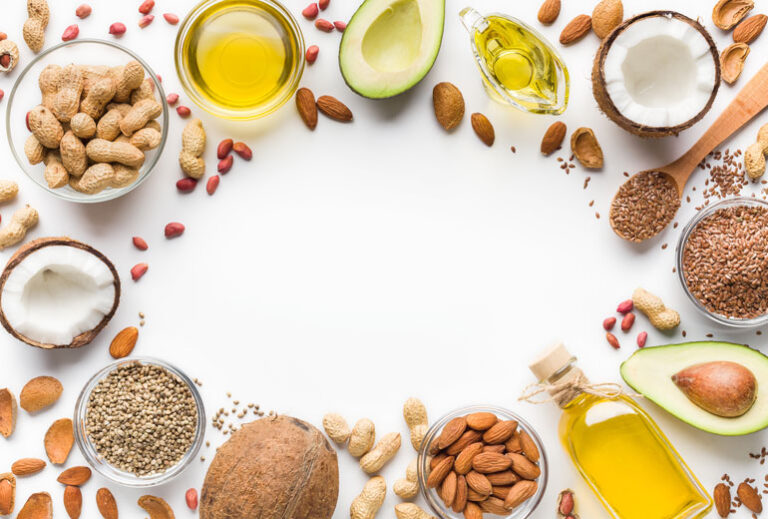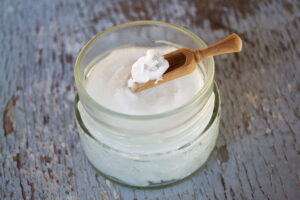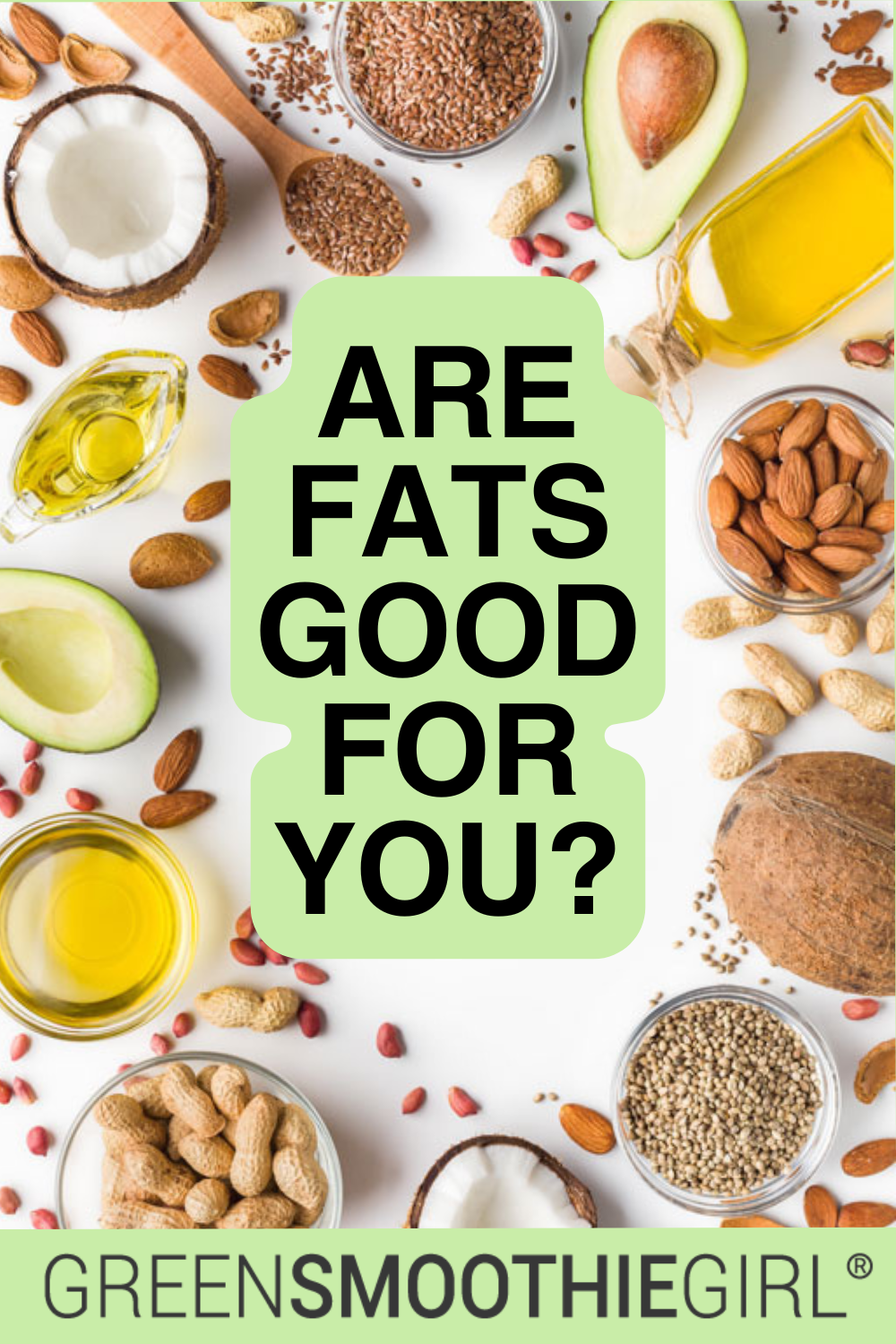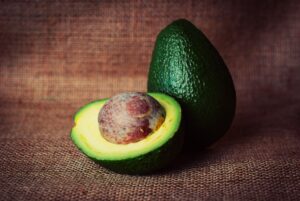Are Fats Good for You? The Truth About Good and Bad Fats

For decades, Americans were told that dietary fat was the enemy.
The rise of “low-fat” everything – from yogurt to cookies – coincided with an explosion in chronic diseases, from obesity and diabetes to heart disease.
Ironically, despite cutting fat, our nation got sicker, not healthier. (When they took “fat” out, what did they put IN?)
Even some proponents of a plant-based diet continue to operate under the fallacy that fats should be avoided and that an ultra-low-fat diet is the ideal diet.
Here's what you'll find in this article:
- How the war on fat began
- The rise and risk of refined vegetable oils
- The disappearance of medium-chain fatty acids
- Essentials omegas
- The benefits of traditional fats
- What about whole-food fats?
- Conclusion: Know the difference between good and bad fats
How the War on Fat Began
Early and flawed studies, such as Ancel Keys’ “Seven Countries Study,” heavily influenced the demonization of dietary fat, especially saturated fat.1
Since then, it has been criticized for cherry-picking data and downplaying confounding factors.2 Public health policy followed suit, and the food industry responded by replacing fats with refined carbohydrates and sugars.
In particular, tropical oils like coconut and palm oil were vilified, mainly due to political and commercial interests.
The soybean industry, seeking to promote its own refined oil products, launched campaigns in the 1980s that helped frame saturated fat as a public health villain, despite lacking substantial evidence.
I remember in my 20s seeing “vegetable oil” in a plastic bottle and wondering, “How is this from vegetables?” (It’s not.)
The Rise and Risk of Refined Vegetable Oils

Refined vegetable oils are highly processed, chemically extracated, and toxic.
In place of traditional fats, Americans began consuming large amounts of refined vegetable oils – soybean, canola, corn, safflower, and sunflower oil.
These oils, often chemically extracted using hexane, are highly processed and typically deodorized through heating above 400°F. This process oxidizes the oils, making them rancid and generating harmful compounds such as aldehydes and trans fats.
Hydrogenated fats are bombarded with hydrogen atoms at high temperatures to make them solid at room temperature. They are deadly “trans fats” that are documented to damage or destroy every cell they encounter.
Refined vegetable oils are high in omega-6 polyunsaturated fatty acids (PUFAs), which, in excess and out of balance with omega-3s, promote inflammation, a known contributor to many chronic diseases, including cardiovascular disease and cancer.3
The Disappearance of Medium-Chain Fatty Acids (MCFAs)
Medium chain fatty acids (MCFAs) were essentially run out of the food supply. Some experts theorize that many years of missing MCFAs may contribute to neurological and nervous system disorders such as Alzheimer’s, Lou Gehrig’s Disease (ALS), and Multiple Sclerosis.
MFCAs are necessary in our diet and lead to silky hair, smooth, unlined skin, and healthy cellular function everywhere in the body.
They help utilize EFAs, supplying quick energy (metabolized in the liver like carbs rather than being stored in the adipose tissue or as belly fat) and enhancing our immune system with critical nutrients.
[Related: 14 Ways I Optimize My Health and Energy Every Day]
Organic, virgin coconut oil has the highest levels of MFCAs (58%) and has provided some of the healthiest and most beautiful people on the planet with excellent nutrition for thousands of years.
The Benefits of Traditional Fats

Pacific Islanders have virtually no heart disease or cancer, and their diets contain up to 60% fat, most of it saturated fat from coconut!
In The Coconut Oil Miracle, Dr. Bruce Fife documented how Pacific Islanders who are relatively unaffected by Westernization have virtually no heart disease or cancer, and their diets contain up to 60% fat, most of it saturated fat from coconut!
Coconut oil is antimicrobial, antibacterial, and antifungal – it has been shown to kill strep, staph, the virus that causes leukemia, and much more. (The best coconut oil is the fat found in the whole food, coconut!)
The fat debate centered on saturation for many years, obscuring other factors. Lauric acid (the immune-boosting compound in mother’s milk) is found abundantly in coconut oil, as well as butter. Use coconut oil in baking and sautéing (it does not produce trans fatty acids at high temperatures like other oils).
I often use pure coconut oil on my face and hair, and it has excellent anti-aging results. Although coconut oil is low in EFAs, it increases the utilization of EFAs by up to 100 percent. It also nourishes the thyroid and increases metabolic rate for up to 24 hours.
Extra-virgin olive oil is rich in oleic acid and antioxidants and is an excellent salad oil. It is made up of long-chain fatty acids that contribute to body fat, so use it in moderation.
[Related: 5 Easy Ways to Make Gorgeous and Delicious Complete-Meal Salads]
The Power of Essential Omegas: Why Balance Matters
Essential Fatty Acids (EFAs) include omega-3, omega-6, and omega-9 fats. They’re called "essential" because your body can't produce them on its own, which means you need to get them regularly through your diet.
These fats play a crucial role in nearly every system of the body.
They support brain and heart health, strengthen the immune system, and help regulate hormones that influence mood, fertility, and thyroid function. Omega-3s are especially known for their ability to reduce inflammation, stabilize mood, and protect against anxiety and depression.
What’s important with EFAs is balance.
Ideally, we should consume omega-3 to omega-6 fats in a ratio of about 1:1 to 1:4. However, the modern Western diet – high in processed foods made with refined vegetable oils – often skews that ratio heavily in favor of omega-6s, sometimes by as much as 20:1. This imbalance can contribute to chronic inflammation and a host of related health problems.
What About Whole-Food Fats?
Whole plant fats – like avocados, nuts, seeds, and olives – are nutrient-dense and provide fiber, antioxidants, and phytochemicals in addition to fat.
The best way to get excellent-quality EFAs is from flax seeds – our Sprouted Flax and Tri-Omega are sprouted for massively higher nutrition, and dried below 100 degrees to preserve nutrition, and they’re organic.
Fish oils are rich in EFAs, but contaminants in water sources and indigestibility in the gut make this source more problematic than flaxseed.
[Related: Fish Oil Supplements: Are They Worth Your Money, Or Are They Toxic?]
I’ve personally consumed a handful of nuts and one to two avocados daily over long periods, without any increase in body fat.
Good sources of fat should account for about 10 percent of total calories.
This ratio is not difficult to achieve when you eat a wide variety of plant foods, focusing primarily on greens, vegetables, fruits, and legumes, in that order. Most people get much more fat than that, but from fats that damage the endothelial lining of the cardiovascular system.
Nuts and seeds, avocado, olives, and coconut are high in fats, but good fats we should eat a small amount every day. Use unprocessed oils, such as flax, olive, palm, or coconut oil, minimally.
Conclusion: Know the Difference Between Good and Bad Fats
Fats are critical and necessary for a healthy life. Obsessively counting fat grams will not lead to health and leanness.
To thrive, minimize oils, and get whole-food fats in your diet, like avocados, nuts, and seeds, daily.
Avoid synthetic fats like margarine, shortening, and refined vegetable oils – these are truly the fats we should eliminate from our diets, as well as animal fats like lard and bacon grease.
The more I learn about oils, the less I use them, but if I do use them, I find extra-virgin olive oil in glass jars or cold-pressed coconut oil. I don’t trust the avocado-oil trend, and I avoid most of the others due to all the processing and rancidity.

Disclosure: This post may contain affiliate links that help support the GSG mission without costing you extra. I recommend only companies and products that I use myself.

References
- Keys, A., Menotti, A., Aravanis, C., et al. (1984). The seven countries study: 2,289 deaths in 15 years. Preventive Medicine. https://doi.org/10.1016/0091-7435(84)90047-1
- Teicholz, N. (2014). The big fat surprise: Why butter, meat & cheese belong in a healthy diet. Simon & Schuster.
- Simopoulos, A. P. (2008). The importance of the omega-6/omega-3 fatty acid ratio in cardiovascular disease and other chronic diseases. Experimental Biology and Medicine.
Image Notes
- Vegetable oil image used via an Attribution 2.0 Generic license via Flickr user Mike Mozart
Posted in: Health Concerns, Healthy Weight, Whole Food
















